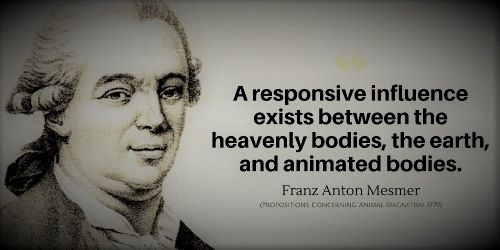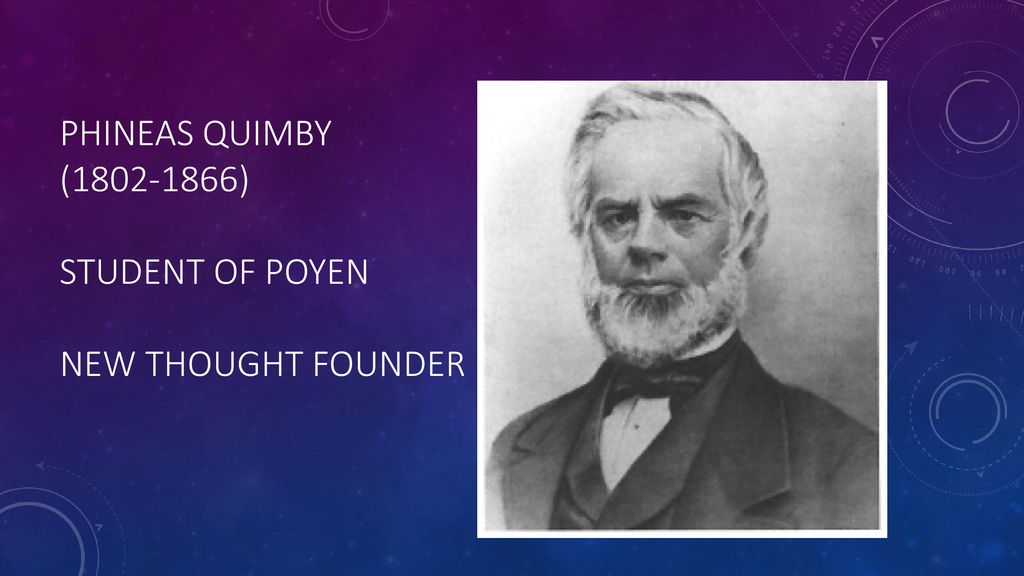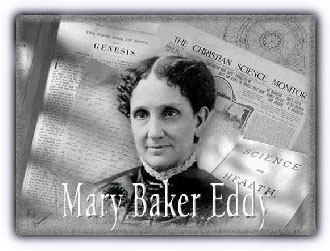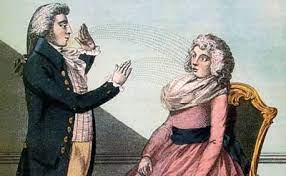What is hypnosis? We have all seen, and laughed at, the stage hypnotist as he appears to have control over the minds of unsuspecting members of the public. With a click of his fingers, people fall under his spell.
He can make them forgot their own name, have them sing and dance, or even have them believing that they are chickens, flapping their wings and clucking as they walk around the stage. Hilarious. But what is going on?
Mesmer
Though some claim that a form of hypnotic suggestion can be found in earlier times, hypnosis is often traced back to a German physician named Franz Anton Mesmer (1734-1815)
Though Mesmer finally became a doctor, the plan was that he would become a Catholic Priest. With this in mind, he attended a Jesuit College aged 12, before moving onto a Jesuit Theological School aged 16. Afterwards, aged 20, he began studying Mathematics, Philosophy, Physics, Theology, French, and Latin graduating as a Doctor of Philosophy. When he was 25 Mesmer decided that he should study law, but after a year he changed his mind and his course. Mesmer went on to study medicine and he qualified as a physician six years later, when he began practising as a doctor in Vienna.
When he was 40 years of age, Mesmer heard that a Jesuit astrologer named Maximillian Hell claimed that he could heal people using what Hell called ‘magnet therapy.’

Hearing this news excited Mesmer. Years earlier he had written a doctoral thesis based on the idea that the movement of heavenly bodies affected people’s health. In this he had followed the work of Isaac Newton who taught that ocean tides are caused by the gravitational effects of the sun and moon.
Mesmer claimed that he knew how magnetic therapy worked and, if Hell’s magnetic therapy worked, it must be because a magnetic fluid exists in all life forms.
Following this, Mesmer developed his own theory, something he called ‘magnétisme anima’ or animal magnetism.
He suggested that healing would take place through an induced trance-like state and the flow of “animal magnetism” from the physician to the patient. Mesmer believed the occultic view that there are thousands of channels in our bodies through which an invisible life force flows and that illnesses are caused by blockages. He said that animal magnetism could cure illness by removing the blockages and restoring the flow. This is where the term “to mesmerize” came from. Mesmer’s practices are the beginnings of modern-day hypnotism.
On one occasion, Mesmer conducted a trial using magnets. A woman came to him having a form of hysteria. She was given an iron preparation to swallow and then Mesmer attached magnets around her body. She claimed that she could feel a fluid passing around her body, which she said was healing her. This was enough for Mesmer to confirm his theory.
His ideas gained a lot of public attention firstly in Vienna and then afterwards, when he moved to fashionable Paris; there he became a highly sort after physician. Though popular, Mesmer struggled to have his theories accepted by the scientific community at large.
Sometime later he abandoned his use of iron preparation and magnets altogether, asserting that he could gain equally good results from just passing his hands over people. What was going on?
The Power of Suggestion
What Mesmer called animal magnetism, was nothing of the sort. What he had actually stumbled across was the power of suggestion.
Mesmer was an imposing figure with a dominating personality. It was said that people became highly suggestible in his presence. Claiming that his methods worked wholly on nervous ailments (i.e. psychosomatic conditions coming from the mind) supports the idea that Mesmer had some influence over his patients.
It wasn’t until nearly 30 years after Mesmer’s death that his methods of suggestion, then known as Mesmerism, were formally discovered by a man named James Braid.
James Braid (1795-1860) was a Scottish surgeon and natural philosopher. He is often regarded as the ‘Father of Hypnosis’. It was he who coined the term ‘hypnosis’ removing it from the shadows of Mesmerism.
From Mesmerism to Hypnosis
Hypnosis is a mental state of highly focused concentration, diminished peripheral awareness, and heightened suggestibility. There are numerous techniques that experts employ for inducing such a state. Capitalizing on the power of suggestion, hypnosis is often used to help people relax, to diminish the sensation of pain, or to facilitate some desired behavioural change.
(www.psychologytoday.com/us/basics/hypnosisday)
Hypnosis, long regarded as a secretive and occult phenomenon, has come a long way since the nineteenth century. Now hypnosis is lauded as a credible option in dealing with issues connected to the mind. But, just because hypnosis has gone all mainstream and acceptable, it still has its detractors.
The Christian website wayoflife.org notes the following:
When used in the field of modern health care, the idea is that the practice of hypnotism itself is innocent and useful and can be divorced from its occultic associations, but this is impossible. Hypnotism arose from the field of occultism and remains intimately associated with it. The Encyclopedia of Occultism and Parapsychology says: “Hypnotism is no longer classed with the occult sciences…Nevertheless its history is inextricably interwoven with occultism, and even today much hypnotic phenomena is classed as ‘spiritualistic.’”
(Hypnosis and Health Care – wayoflife.org)
The article continues…
The Encyclopedia of New Age Beliefs observes: “Historically, hypnotism is typically associated with the occultist or psychic, the one who exercises power over things or persons, such as the shaman, magician, witch doctor, medium, witch, guru, or yogi.” (Beware of Hypnosis – wayoflife.org)
What also needs to be said is that familiar practices in cultic groups can also be traced back to Mesmer’s work.
New Thought
Phineas P. Quimby, the founder of New Thought was a follower of Mesmer. Quimby set himself up as a Mesmeric healer. He simplified Mesmer’s teachings claiming that all illnesses are connected to the mind. Therefore, if your mind could be changed, your sickness will leave.

One of Quimby’s patients was a lady named Mary Baker Eddy. She came to him suffering from a variety of chronic and painful ailments. Quimby healed Eddy of many of her symptoms and this inspired her to try healing for herself. From this, of course, Eddy went on to become the founder of the pseudo-Christian cult Christian Science.

Mary Baker Eddy embraced some of Quimby’s teachings but rejected others. She claimed that Quimby’s healings were only temporary, and that full healing could only be found in Jesus. She went on to reject the idea of animal magnetism and devoted an entire chapter to denouncing it entitled ‘Animal Magnetism Unmasked’ in the Christian Science textbook ‘Science and Health with a Key to the Scriptures’. What Eddy did maintain was that sickness and health are linked to the mind and that sickness is only an illusion.
Though Christian Science is very much in decline, New Thought ideas are still very much alive and well, practised by occultists, New Agers and sadly even the Church.
The wildly popular self-help book ‘The Secret’ brought to the public’s attention the Law of Attraction, the pseudoscientific idea that our thoughts can create our reality. This is very similar to what many proponents of the so-called Prosperity Gospel believe, and it all leads back to Mesmer and Quimby.
Spiritism
Another significant and occultic movement flowing from Mesmerism was Spiritism.
A student of Mesmer, a man named Andrew Jackson Davis published a book in 1847 entitled: The Principles of Nature, Her Divine Revelations, and a Voice to Mankind. He claimed that this book was dictated to him whilst he was in a mesmeric trance. Following this, many prominent Mesmerists became spiritualists. For more on Spiritualism go here.
Having considered something of the background of hypnosis, let us now consider the question: What should the Christian response be to hypnotism?
Should Christians use Hypnotism?
Hypnosis is a mental state of highly focused concentration, diminished peripheral awareness, and heightened suggestibility. (Psychology Today)
What this definition is saying is that the person being hypnotised greatly lose the sense of what is going on around them, and whilst in this state, they will be vulnerable to whatever is being suggested to them.
Is this something a Christian should allow to happen to them?
The Bible nowhere teaches ‘Thou shalt not be hypnotised’ but it does speak to us enough about our minds and about change, that we can determine that hypnosis is not in the best interest of the Christian.
The Bible speaks to us of change and how by repentance and faith in Christ, being filled with the Spirit, and then following Biblical precepts people can, and do, change.
In writing to the church at Rome Paul says:
I appeal to you therefore, brothers, by the mercies of God, to present your bodies as a living sacrifice, holy and acceptable to God, which is your spiritual worship. Do not be conformed to this world, but be transformed by the renewal of your mind, that by testing you may discern what is the will of God, what is good and acceptable and perfect.
(Romans 12:1-2)
Paul here speaks of how a person can be transformed by having their mind renewed. How is this to take place? Paul does not say that change can come through the suggestions of another human being whilst being in a trance like state. Rather he tells us that we are to present ourselves as a living sacrifice, holy and pleasing to God. As we do so, as we absorb His Word, we are renewed by the Holy Spirit, and change occurs. This enables us to take every thought captive to obey Christ (2 Cor.10:5).
The end of all things is at hand; therefore be self-controlled and sober-minded for the sake of your prayers.
(1 Peter 4:7)
Here we are exhorted by the Apostle Peter to be self-controlled (not allowing others to have control over us) and to be sober in our thinking. We are not called to be passive, allowing another person’s words or ideas to infiltrate our thinking. In fact, Peter illustrates this further by saying believers should…
Be sober-minded; be watchful. Your adversary the devil prowls around like a roaring lion, seeking someone to devour.
(1 Peter 5:8)
Whilst under hypnosis a Christian is not being sober-minded, they are exhorted to be empty-minded. In an altered state of consciousness, we are not only susceptible to the suggestions of the hypnotherapist, but potentially also to the suggestions of an enemy who seeks to devour us. We are not to give Satan any opportunity to ensnare us.
Lest you fear I am being alarmist, let’s not forget that many of the methods used in hypnosis are shared by mystical, philosophical, and religious systems, including the occult…see more here.
Conclusion
In conclusion, Christians are told to yield themselves fully to God alone. We are to Love the Lord our God with all heart, soul, mind, and strength. We are not to allow anyone or anything else to influence our thoughts or behaviour in this way.
Many people seek hypnotherapy because of some besetting struggle with addiction or fear, but believers can, and should, go to Christ with their issues not man.
See to it that no one takes you captive by philosophy and empty deceit, according to human tradition, according to the elemental spirits of the world, and not according to Christ
(Colossians 2:8)
For God gave us a spirit not of fear but of power and love and self-control.
(2 Timothy 1:7)
As we bring all our struggles to God and put our trust in Him, may we know perfect peace.
You keep him in perfect peace whose mind is stayed on you, because he trusts in you.
(Isaiah 26:3)c

